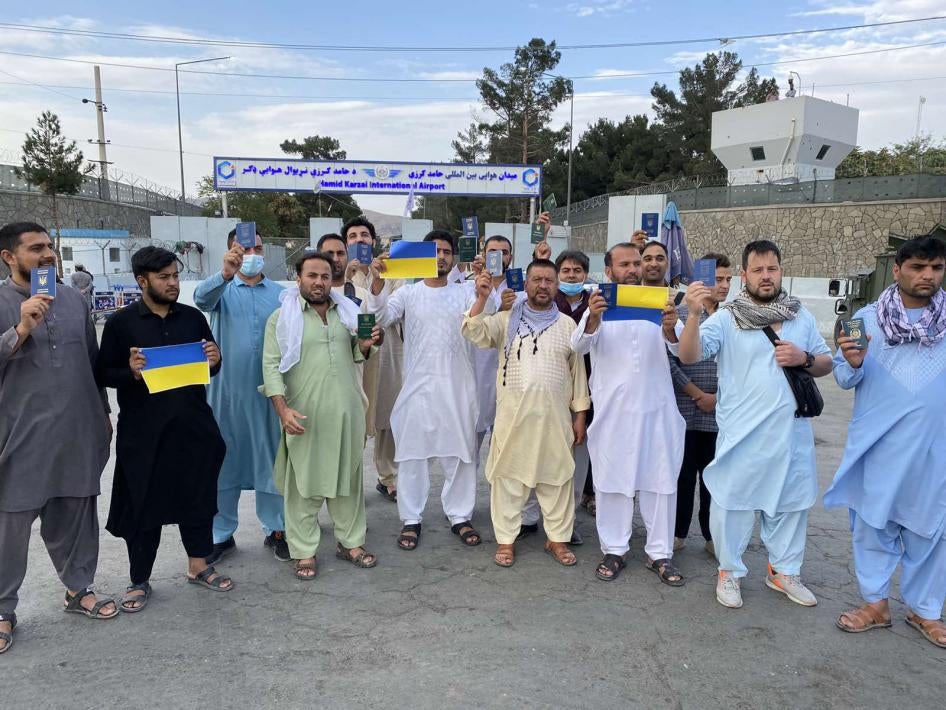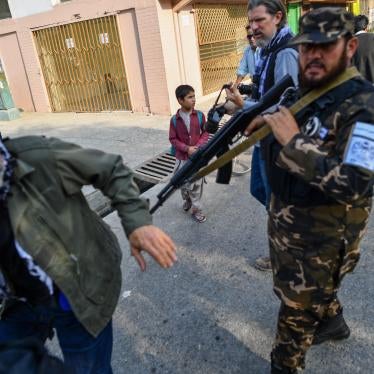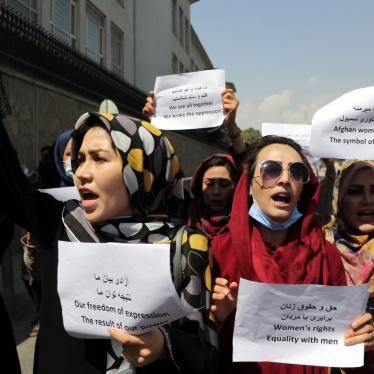As governments scrambled to evacuate their nationals and Afghans at risk from Afghanistan following the Taliban takeover in August, Ukraine made headlines last month with its rescue in Kabul of nearly 100 Ukrainians and Afghans at risk.
The Ukrainian government has evacuated about 250 people so far, including Ukrainians, Afghans, and citizens of other countries, some of whom have sought asylum in Ukraine.
But dozens – mostly Afghan nationals with Ukrainian passports or residence permits and their family members – remain stranded in Afghanistan. And their circumstances are quickly deteriorating.
Many people who made it onto Ukraine’s evacuation list traveled long distances with their families to be closer to the Kabul airport, where they have been waiting for evacuation and other assistance from the Ukrainian government, while fearing for their lives.
“Khalil,” who holds a Ukrainian passport and has been living and working in Odessa, Ukraine, told Human Rights Watch he was visiting his family in Afghanistan when the Taliban took control. Khalil, like several other men, said that Taliban fighters stopped and searched them at checkpoints, suspecting them of being spies because of their foreign documents. He said the Taliban had threatened his sister because she is an international law student and taught English: “They tell women like her that they are not Muslim…that they work with Americans.”
“Sarwar,” 33, worked in Ukraine, has a Ukrainian passport, and traveled regularly to see his wife and three children in Afghanistan’s Khost province. His 13-year-old son received a serious head injury in August when a military vehicle exploded near them. He needs medical assistance, which he has not been able to get in Afghanistan. Sarwar is stranded in Afghanistan and worried about his son but none of his family members have Ukrainian visas so he cannot get them out.
Ukraine’s Foreign Ministry officials have made contradictory statements about further evacuations, while Ukrainian embassies in Pakistan and Tajikistan, tasked with assisting evacuations and issuing visas, have so far been unresponsive to pleas for visas or information. “We are desperate, and they play us like a football,” one Ukraine passport-holder said. “No one is helping us.”
Once flights resume, the Ukrainian government should step up efforts to provide nationals and Afghans at risk with evacuation, protection, and assistance, including prioritizing visas for their families or giving them the opportunity to seek asylum. Their lives may depend on it.










